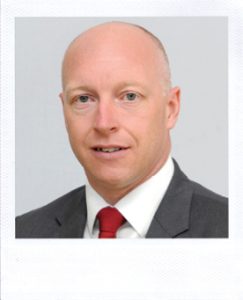 THE SECURITY AND EVENTS PROVIDER’S VIEW
THE SECURITY AND EVENTS PROVIDER’S VIEW
PAUL EVANS,
CARLISLE CEO
In April 2024, Carlisle decided to remove the use of subcontractors to deliver core, non-specialist roles across front-line security and events operations. This move was part of our broader commitment to promote ethical labour practices and to raise industry standards.
In the security industry specifically, margins are often low, which gives providers little flexibility to recruit and train staff in-house. As a result, they often rely on subcontractors to meet fluctuating demand. This in turn drives down pay rates to unsustainable levels, leads to high staff turnover, and subsequently affects the overall quality of service delivery. Given the crucial role security officers play in keeping our communities safe, we believe such compromises should not be an option, particularly during times of significant national threat levels.
We hope that Carlisle’s leadership serves as an inspiration for other industry leaders to prioritise ethical labour practices. By doing so collectively, self-delivery can become the norm, raising industry standards while minimising buyer pressures to reduce labour costs. This, in turn, can help attract much-needed new talent to the industry.
Transitioning to an entirely in-house delivery solution required headcount investment in our recruitment and operations teams, but it has also focused our attention on long-term workforce planning and mobility across contracts. This process has involved gradual progress with a primary focus on recruitment and training, including the completion of ACT and SCaN training modules by all Carlisle team members (not just those in SIA licensed roles) by the end of 2024 to maximise in-house capabilities. It has played a critical role in minimising our dependency on subcontractors, ensuring a seamless transition period.
This initiative has already been transformative for our company, leading to better staff retention and a more cohesive and collaborative working environment. It has reduced risk, improved efficiency, and enhanced the overall quality of service. By understanding our people, their skills, and their suitability for various roles, we ensure they are fully trained, inducted, and provided with progression opportunities for a fulfilling career. In fact, 58 per cent of newly created salaried roles have now been filled by internal candidates.
Finally, eliminating subcontracted labour has provided us with more control over vetting and compliance, aligning with the SIA’s ‘Operation Benchmark’ initiative to remove security training malpractice. Our employees feel more connected to the company, leading to increased job satisfaction and a greater sense of ownership and pride in their work. This has resulted in lower turnover rates and a more experienced and knowledgeable team dedicated to upholding our high standards.
Achieving self-delivery required extensive efforts from operational leaders and teams across the whole organisation, but it has proven to be one of the best decisions we could have made. We will continue to develop exceptional people and build diverse teams that embody Carlisle’s core values, aiming to nurture a positive culture and deliver exceptional service to our portfolio of clients.
 THE CATERING PROVIDER’S VIEW
THE CATERING PROVIDER’S VIEW
ANTONY PRENTICE,
JOINT MD, BM
We believe the benefits of outsourcing stem from specific catering expertise, which often differs from the client’s business and focus. A caterer brings extensive experience, deploying specialist knowledge, training, technology, innovation, key legislative understanding and market access to take their catering offer to the next level.
Catering teams get much better opportunities to learn from others within their own field by being part of a wider catering network that allows them to tap into the skills, knowledge, mentoring, and training an outsourced caterer can offer.
Caterers also have access to a larger range of quality fully vetted suppliers because of an enhanced supply chain network compared to smaller, in-house operations, and effective cost management processes, such as waste management programmes and robust benchmarking. We can provide clients with cost and sales reports to help them make decisions around customer tariffs and menus and can provide proven case studies as well as up-to-date information on current trends and innovations.
BM has a long history of securing in-house catered operations and in some cases, we have seen hospitality volumes double, largely due to being able to provide better resource and training to upskill teams. Caterers can act as trusted advisors to clients to guide them in enhancing facilities, driving sales through better marketing, and in some cases even facility relocations.
It’s important to treat a previously in-house catered operation like any new contract, starting by establishing a robust, tailored mobilisation plan based on regular meetings with clients and stakeholders. TUPE is nearly always a factor, and time is spent getting to know the teams, answering questions and addressing any concerns.
We make sure the team is aware of the benefits for them, for example having access to that wider pool of expertise, mentoring, support and potential career development. Sometimes it might take a little longer for established habits to change and it’s important to have the whole team on board in such circumstances. To do that, you must communicate the reasoning behind any changes and take the team on that journey with us.
Depending on the specifics of the contract, the client tends to be responsible for the running costs of the building (services, maintenance and so on) while the caterer has responsibility for procuring any consumables, managing the catering teams and ensuring that due diligence and legal compliances are met.
Flexibility and agility are among core skills as caterers, who thrive on change and are well used to adapting to changing client needs, customer expectations and any changes in legislation. As a result, we can tailor our approach to individual client needs.
In our experience, a collaborative approach makes for the best working relationship. Open, honest communication is key and something we establish from the start with all our clients. We know it works and the benefits we can bring as a catering business because of our long history of success stories, and our number of long-standing, happy customers, many of whom have been with us for years.




